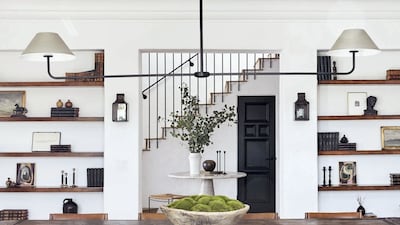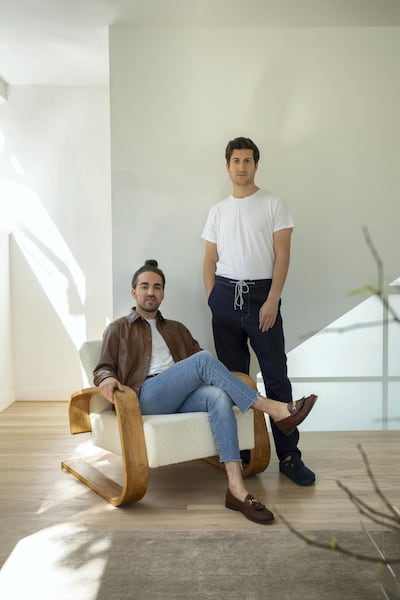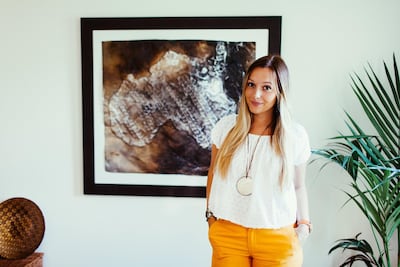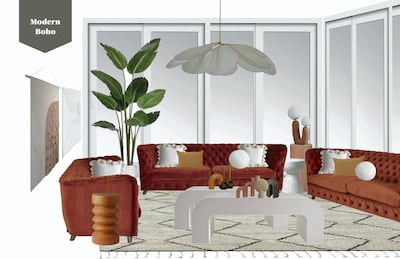There has been a movement towards the digital realm within the interior design world. Styling remotely, working with clients over Zoom and sending PDFs back and forth are all part of this new age of design.
The advantages are obvious and aplenty. Living anywhere in the world becomes more accessible, working with an internationally acclaimed designer is a distinct possibility and having your home redone by giving the designer a virtual walkaround is completely doable.
The Expert by Jake Arnold and Leo Seigal
This is what led international celebrity designer Jake Arnold and tech entrepreneur Leo Seigal to develop The Expert during the pandemic. The virtual platform, which launched in February, connects clients directly to interior designers around the globe via one-on-one video consultations, thus making the most prolific creatives instantly accessible to house-proud masses the world over.
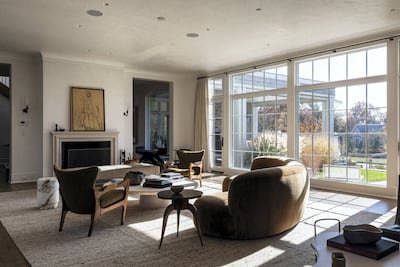
"The idea for The Expert was born during lockdown, while I was in a 'bubble' with my best friend, Leo," Arnold tells The National. "I was getting hundreds of direct messages on Instagram with followers asking me to Zoom or Skype and help them with their homes. We tested a few sessions, spoke to my peers and friends in the industry, quickly got them on board, and launched with immediate interest and success."
The Expert launched with 75 global design talents including Arnold himself. The Los Angeles heavy hitter has curated spaces for Rashida Jones, John Legend and Chrissy Teigen, and Dan Levy. Other names you can access include Leanne Ford (Pittsburgh), Brigette Romanek (LA), Amber Lewis (CA), Robert Stilin (New York), Martin Brudnizki (London) and Danielle Siggerud (Copenhagen).
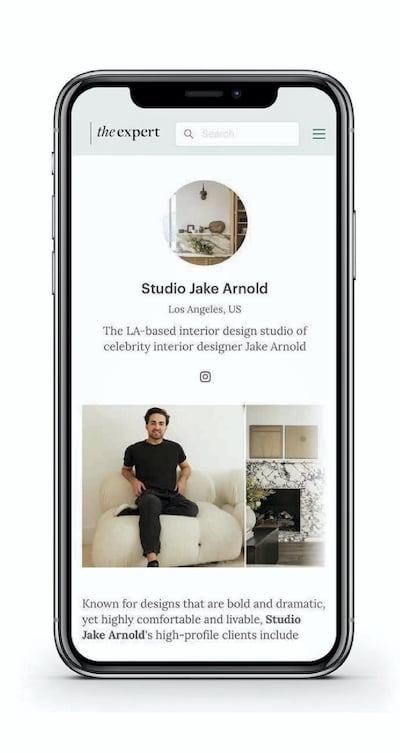
The USP of The Expert, and indeed remote interior design as a whole, is the versatility on offer, thanks to the varying aesthetics and budgets to suit multiple requirements.
Arnold, who is more used to dealing with household names and open-ended bank accounts, says about working with “real people” with smaller budgets: “It's amazing to be able to connect with a greater clientele geographically, and those with varying scopes of work.
"One thing that’s common among all customers of The Expert is that they are super-engaged, as they've most likely been following my or our other designers' works for some time. They're taking meticulous notes and taking the process seriously. We're starting to see results from our sessions, and that’s always rewarding.”
Sessions can be booked in 25 or 55-minute increments directly via a calendar on TheExpert.com. These range from $150 to $2,500, and can be as simple as needing advice on sourcing the last few furniture pieces to make a room come together.
Of course, working remotely has its challenges, as not being able to see a home and not forging that instant connection can all affect a designer’s ability to be creative or meet a brief. It’s why Arnold says the first trick is to “break the virtual barrier” and immediately make new clients feel at home, as it were.
“Getting a glimpse into someone's home and environment is personal; but making them feel comfortable comes naturally to a lot of designers, having worked one-on-one with various types of clients. The benefits outweigh the challenges," he says.
"We're saving on travel time, we're able to apply years of experience into a 55-minute session, we're able to work with all scopes and budgets, and we're able to put our touch on so many more homes.”
Arnold’s advice for designers who are considering moving to an online offering is to have the client lay out their goals for the virtual consultation at the outset.
“That way, when we naturally go off on tangents, I can always steer things back on track and make sure the clock doesn’t run out without the client having achieved their goals for the session.”
Kuky Design by Valentina Piscopo
Unlike Arnold, UAE designer Valentina Piscopo always knew she wanted to deal with a virtual platform, even pre-pandemic. Kuky Design, which is known for its “Cali-cool aesthetic”, launched in 2019.
While the company does offer traditional face-to-face interior design services, 90 per cent of its business is run as an e-design platform, in the UAE as well as for projects in the UK, Italy, Saudi Arabia and Ethiopia.
A huge advocate for going digital from the get-go, Piscopo, however, found people were not 100 per cent sure if the concept was “for them”, she says.
“It was a no-brainer for me to start an online business because I did not want to be restricted geographically; both where I could physically work and which city I could design homes in were important to me. But, admittedly, despite e-designs being offered in the region by other prominent designers, the concept was still new in 2019 and I had to invest time in educating customers before seeing the rewards.”
Then the pandemic struck, and Kuky Design was “flooded” with work. Suddenly everyone was spending a lot more time in their homes and noticing everything they wanted to change, but wanting to keep safe.
An online platform helmed by a local designer to help them realise their space’s full potential was an easy fit for many people in the UAE.
Piscopo found one of the great advantages of an online interior design project is that people’s own DIY abilities come to the fore. “Clients who opt for this service all have a knack for DIY or want to put things together themselves and be house-proud of what they’ve accomplished. E-design offers them the flexibility to style the way they want and to be creative.
“I am a lot stricter with my non-e-design clients when it comes to how much input they have, I feel more responsibility to deliver the look that I promised, that I was hired to do, but that rigidity is not for everyone.”
Kuky Design offers an online quiz to aid designers, both enthusiastic and professional, in assessing what works for their (or their client’s) style. It’s a lighthearted way of getting information without having to fill in forms, send endless emails and have long chats. Piscopo and her team can then get everything a person needs and send back the design, shopping list and visuals.
“Taking an engaging quiz with beautifully curated images is, if anything, a lot of fun. On a more serious note, we use this tool to gather important information such as style preferences and budget.”
Despite all these avenues and opportunities, Piscopo says she still faces some resistance from other designers, who simply “don’t believe in designing online".
“The launch of The Expert, and the approachability and affordability of their e-designs, have opened up the consumer market to the masses, but I don’t believe it to be a substitute just yet for face-to-face," she says.
"I do see eventually a rise in faster processes, wider reach and digital accessibility, which should never mean a devaluation of one’s designs but rather a new way of branding oneself and communicating through a different channel. It’s about adaptability. Designers should be excited about it, not fighting it. The possibilities are endless.”
